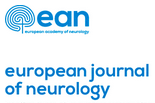 Charcot-Marie disease (or CMT) is one of the hereditary sensory-motor neuropathies. It is the most common neuromuscular disease with an estimated prevalence of 1/2500 individuals. It causes motor disorders, more distal than proximal, sometimes very disabling, but also sensory disorders most often in the background. CMT remains extremely heterogeneous both clinically and genetically with more than eighty genes involved to date.
Charcot-Marie disease (or CMT) is one of the hereditary sensory-motor neuropathies. It is the most common neuromuscular disease with an estimated prevalence of 1/2500 individuals. It causes motor disorders, more distal than proximal, sometimes very disabling, but also sensory disorders most often in the background. CMT remains extremely heterogeneous both clinically and genetically with more than eighty genes involved to date.
In an article published in May 2020, Austrian and German clinicians report the results of a survey of fifty-four women with CMT concerning their pregnancy: progress, occurrence of possible complications before and after childbirth… Three quarters of them had the most common form of CMT, a demyelinating form linked to the duplication of the PMP22 gene (CMT1A). A total of 98 pregnancies could be documented, which made it possible to conclude that there were no complications or serious undesirable effects during pregnancy or childbirth, in the vast majority of cases. The frequency of these events does not differ from those of the general population in Germany. A third of the women interviewed, however, reported a feeling of increased fatigue, most often resolving after delivery.
